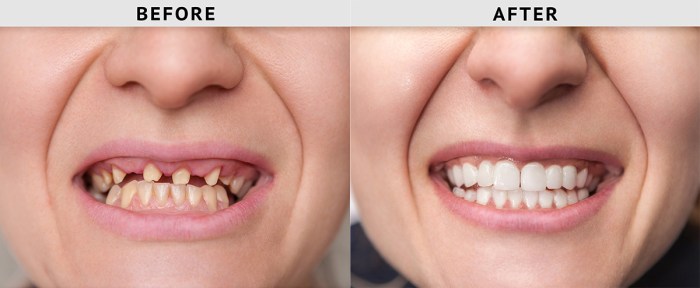List the indications and contraindications for dental implants – Dental implants are a widely accepted treatment option for replacing missing teeth, but their suitability depends on various factors. This article provides a comprehensive overview of the indications and contraindications for dental implants, helping you make informed decisions about your oral health.
The content of the second paragraph that provides descriptive and clear information about the topic
Indications for Dental Implants: List The Indications And Contraindications For Dental Implants

Dental implants are recommended in a wide range of scenarios to restore missing teeth and improve oral function. They offer numerous advantages over other tooth replacement options, including:
- Long-term stability and durability
- Excellent aesthetic results
- Improved chewing ability
- Prevention of bone loss
- Enhanced self-confidence
Absolute Contraindications for Dental Implants, List the indications and contraindications for dental implants
Absolute contraindications, which completely preclude implant placement, include:
- Uncontrolled systemic diseases, such as active cancer or uncontrolled diabetes
- Severe osteoporosis or bone loss
- Severe immune deficiency
- Uncontrolled bleeding disorders
Relative Contraindications for Dental Implants
Relative contraindications, which may increase the risk of implant failure, include:
- Controlled systemic diseases, such as diabetes or hypertension
- Moderate bone loss or osteoporosis
- Smoking
- Alcoholism
- Poor oral hygiene
Evaluation and Planning for Dental Implants

Prior to implant placement, a thorough assessment is crucial to ensure the patient’s suitability and the best possible outcome. This assessment includes:
- Detailed medical history
- Comprehensive oral examination
- Imaging studies, such as X-rays or CT scans
Treatment planning is also essential to determine the appropriate number, size, and location of implants, as well as the type of prosthesis to be used. This planning process involves collaboration between the dentist, surgeon, and laboratory technician.
Common Queries
What are the main advantages of dental implants over other tooth replacement options?
Dental implants offer several advantages, including their ability to restore function, aesthetics, and oral health. They are designed to mimic the natural tooth structure, providing a stable and long-lasting solution.
What are the absolute contraindications for dental implants?
Absolute contraindications include uncontrolled systemic diseases, such as severe uncontrolled diabetes or certain blood disorders, and active infection at the implant site.
What is the importance of treatment planning in dental implant placement?
Treatment planning is crucial for assessing the patient’s suitability for implants, determining the optimal implant design and placement, and predicting the long-term success of the treatment.
